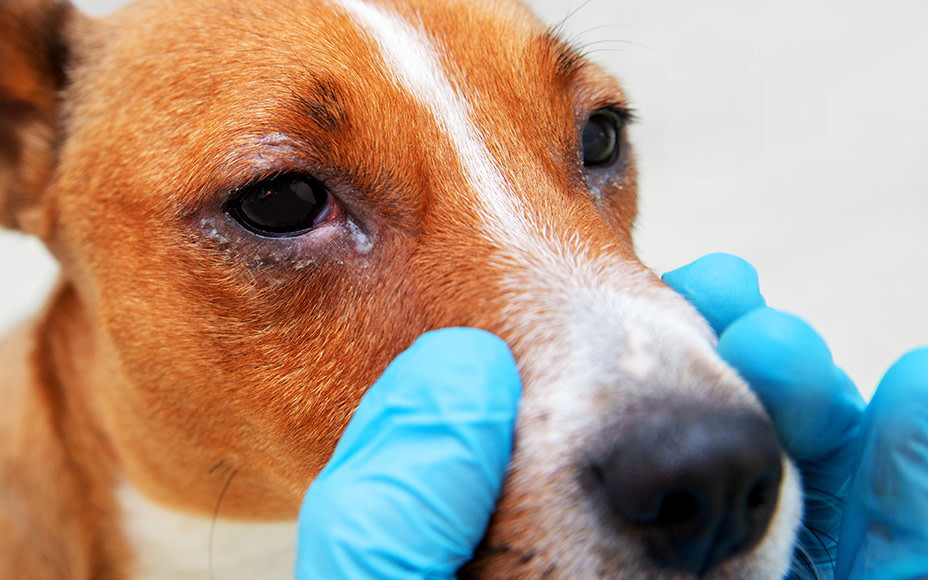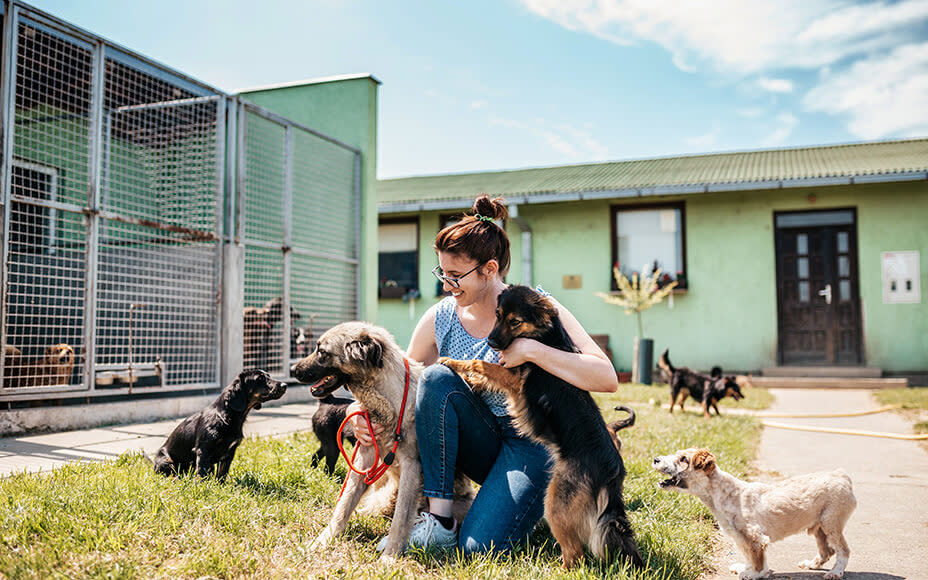Severe, dry cough? Find out if your dog is suffering from kennel cough and what you can do for him.
What is Kennel Cough, Anyway?
You might have heard the term kennel cough in the context of severe canine diseases, especially in relation to international animal rescue.
Kennel cough is a highly contagious upper respiratory tract infection, primarily characterized by coughing, sneezing, retching, vomiting, and fever. The disease is caused by various viruses and bacteria. The two main culprits of kennel cough in dogs are Parainfluenza (viruses) and Bordetella (bacteria).
Symptoms of Kennel Cough in Dogs
The symptoms are usually quite clear and flu-like:
- harsh, barking, sometimes spasmodic cough (possibly not continuous, only during exertion)
- phlegm when coughing (possible sign of pneumonia)
- retching
- difficulty breathing
- runny nose
- conjunctivitis with purulent, tearing eyes
- loss of appetite
- low tolerance for exertion
- in severe cases: fever, inflammation of the throat, tonsils, bronchi, and trachea

Causes of Kennel Cough in Dogs
The cause of the disease is viruses and bacteria. Frequently, the culprits are the Canine Para-Influenza Virus (CPIV), Canine Herpes Virus (CHV), Canine Adeno-Virus Type 2 (CAV-2), and the bacterium Bordetella bronchiseptica.
Sometimes, non-infectious factors can also trigger the disease. These include poor hygiene, very high or low temperatures, high humidity, physical and/or psychological stress, malnutrition, weakened immune system, and untreated worm infestations – conditions often applicable to rescued animals from shelters.
Dogs often initially become infected with viruses that colonize the bronchi and damage the respiratory tract. This makes it easy for bacteria or fungi to cause a so-called secondary infection.
A healthy and balanced diet, sufficient exercise, and appropriate mental stimulation lay the foundation for your pet’s health and can prevent severe outcomes in case of illness.
How Can My Dog Get Infected?
Dogs can easily become infected with kennel cough through a so-called droplet infection. This means that the transmission of the disease occurs through coughing, sneezing, or mutual sniffing. However, the pathogens can also adhere to objects such as dog toys, bowls, baskets, etc., and be transmitted that way.
Consequently, the risk of infection is especially high where many dogs meet, such as in a dog kennel, training ground, or dog school. Dogs housed in shelters or coming from international animal rescue typically live with many dogs in close quarters, increasing the risk of infection.
Note that the disease can also be transmitted to other animals such as household cats. If your dog has contracted kennel cough, he is considered not contagious only seven days after the last symptom. Before that, he can still spread the pathogens and should have no contact with other pets.

Examinations & Diagnosis for Kennel Cough
If you recognize any of the symptoms mentioned above and suspect that your beloved pet might be ill, you should definitely visit a veterinary clinic. There, your four-legged friend’s trachea will be examined to ensure that he hasn’t swallowed anything, causing the intense retching and coughing. Additionally, you will likely be asked if your dog has recently had contact with other dogs, stayed in a kennel, or came from a shelter. All these are crucial facts that veterinarians need to know in order to make a diagnosis.
To identify the causative agent of kennel cough, a throat swab and saliva test are conducted. Based on these results, the appropriate antibiotic can be prescribed. In more severe cases with pneumonia or suspected heart issues, an X-ray of the lungs and heart, as well as a blood test, may be performed.
How is Kennel Cough Treated?
Depending on your dog’s condition, age, and the severity of the illness, kennel cough typically resolves within a few weeks with the administration of medications. Depending on symptoms, medications such as cough suppressants, immune boosters, mucus-thinning agents, or fever-reducing drugs may be prescribed.
If the disease is accompanied by a bacterial infection, the use of antibiotics may also be beneficial. Additionally, a worm infestation, such as with Giardia, weakens your pet’s immune system and requires treatment with appropriate antiparasitics.
Some veterinarians may also prescribe supplements to strengthen the immune system. Our delicious snacks like liver pâté are excellent for administering medications to your dog with enjoyment!
Quick tip:
Due to the coughing, the throat and larynx may be irritated, causing pain during swallowing. If you notice this in your dog, you should soak dry food in warm water or feed wet food until the symptoms subside. It’s crucial not to forget that kennel cough is a highly contagious disease! If your pet is sick, he should by no means play with his four-legged friends until he is completely healthy again.
What’s “Bad” About Kennel Cough?
Coughing, runny nose, fever – sounds like “just” a nasty flu at first. However, with kennel cough, it’s different. Due to the compromised immune system and damaged mucous membranes of the respiratory tract, bacterial secondary infections often occur. In severe cases, the dog may find it challenging to completely overcome the disease and may experience recurring kennel cough several times a year.
In some dogs, complications such as pneumonia or tonsillitis may also occur. If the affected dog is very young or has a weakened immune system, for example, due to a worm infestation, it can further complicate the course of the disease. If kennel cough remains untreated in such cases, it can potentially end fatally in the worst-case scenario.
But don’t panic! This respiratory tract disease is usually not so dramatic. Nonetheless, we sincerely hope that your dog remains unaffected by it. If your beloved pet does show symptoms like coughing, you can support him with some of our products to boost the immune system, such as our Immune Boost Soft Bites. Our Cough Syrup also aids your pet’s respiratory function with a valuable herbal blend that can support the body’s natural defenses and be soothing for the throat and larynx.
Vaccination Against Kennel Cough for Prevention
To prevent your furry friend from getting kennel cough in the first place, there is a vaccine that is administered for prevention. This can be especially useful if you are exposed to an increased risk of infection, such as through club sports, dog shows, regular visits to dog parks, if your dog stays in a kennel or daycare, or encounters many dogs regularly in a confined space.
Unfortunately, there is no vaccine against all kennel cough pathogens, and the vaccine does not provide 100% protection. However, it reduces symptoms and protects against a severe course of the disease. There are two vaccines against kennel cough:
- A combination vaccine that works against Parvovirus, Hepatitis, Distemper, and the Parainfluenza Virus (one of the kennel cough pathogens).
- A vaccine against Parainfluenza and Bordetella bronchiseptica (also a kennel cough pathogen).
It’s best to discuss with your veterinarian which vaccinations are sensible for your pet.

A kennel cough vaccine generally protects against the main causes of kennel cough and lasts for 12 months. Therefore, it should be refreshed annually. You can decide to vaccinate at any time, for example, before a risky situation such as a dog kennel, dog school, exhibition, breeder meeting, or similar.
Note that despite the administered kennel cough vaccination, your dog can still become infected. Due to the evolution of virus strains, a vaccine cannot guarantee 100% protection but significantly reduces the risk of infection.


